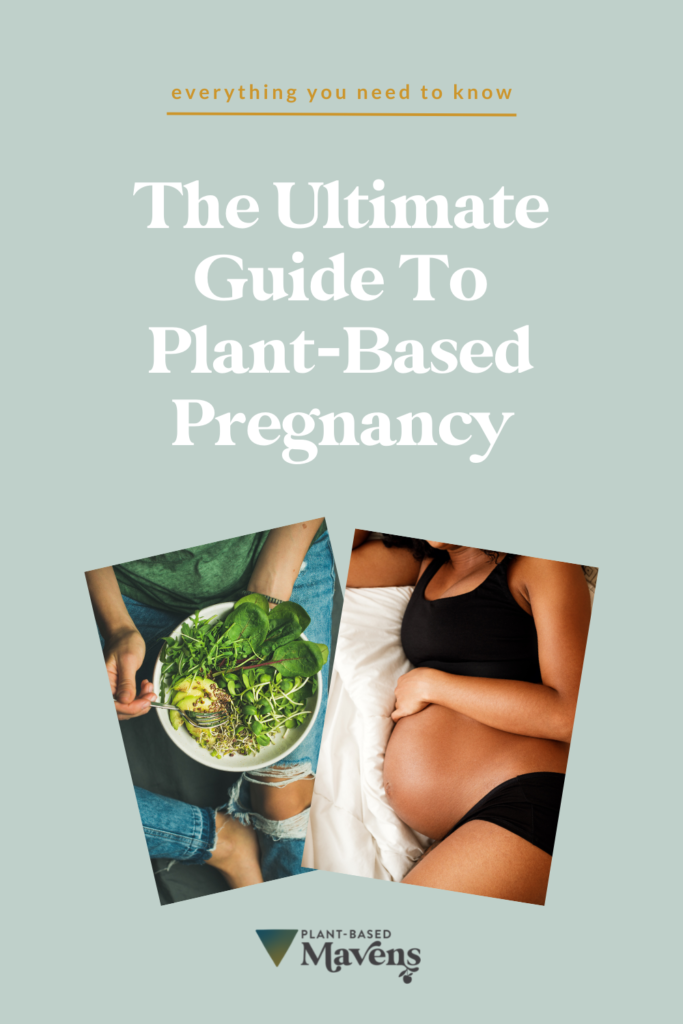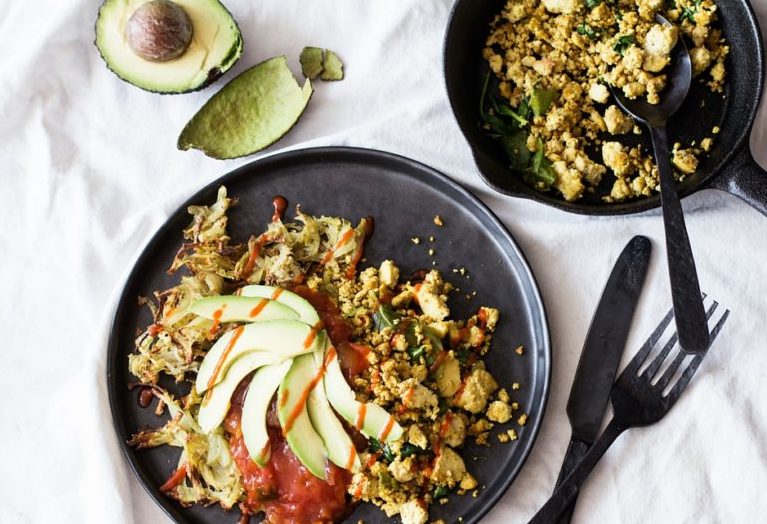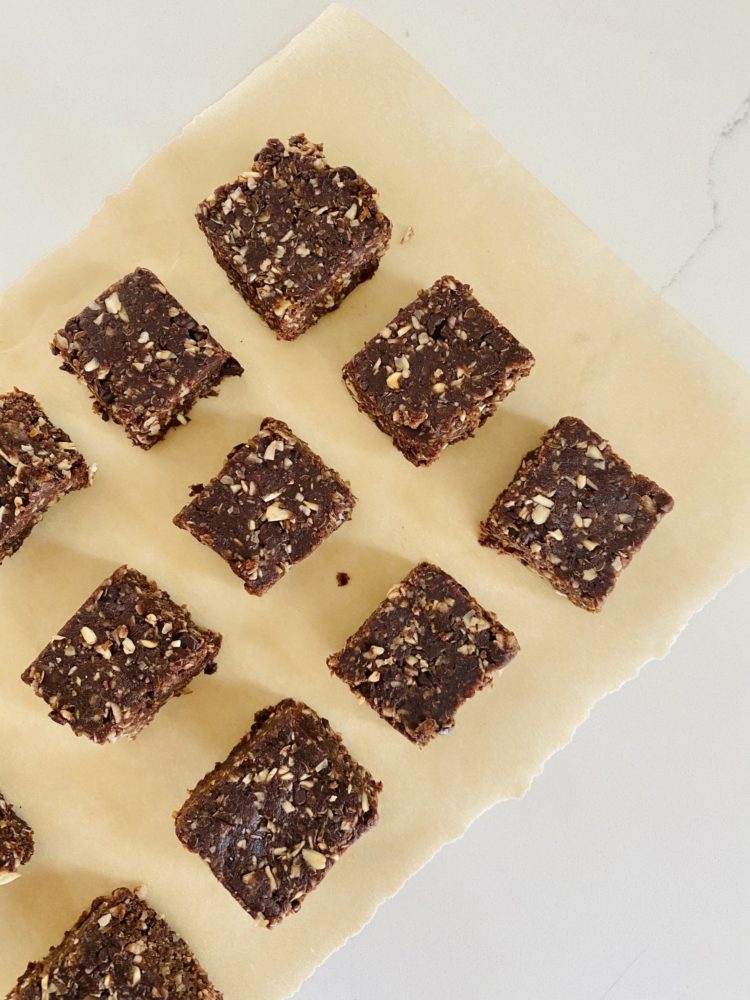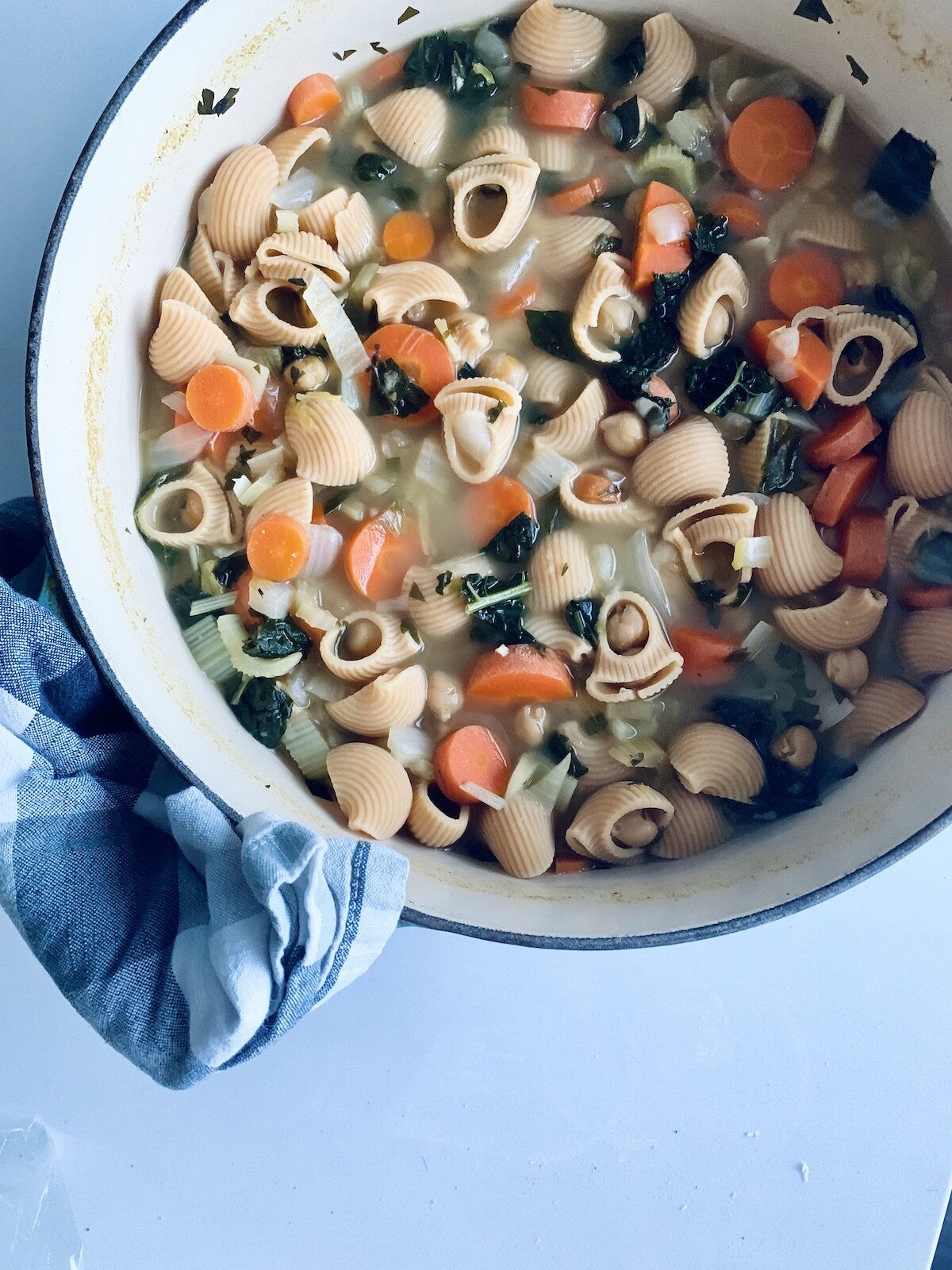If you’re a vegan, vegetarian, or plant-forward mama planning for a healthy plant-based pregnancy, then this guide is for you!
Although pregnancy is a beautiful time, it can also be a strange, exhausting, and sometimes not-so-beautiful time. Your body is rapidly changing, you may be experiencing a rollercoaster of nausea and cravings, and waves of anxiety about labor, birth, or becoming a parent are common. If you’re hoping to have a predominantly plant-based or vegan pregnancy, you may feel an extra layer of worry about getting enough of all the nutrients you and your growing baby need. Not to worry – this plant-based pregnancy guide covers everything you need to keep you and baby healthy.
A plant-based diet offers a wealth of wonderful nutrition during pregnancy, and a well-planned plant-based diet is completely safe (and maybe even beneficial) during pregnancy. Also, a solid nutrition routine can be really grounding during this time of change. Knowing that you are nourishing your changing body (and your growing baby) can quell some of your worries and give you a sense of routine when everything else in life feels so… new!
Here’s everything that pregnant plant-based mamas will benefit from paying special attention to.
(Not pregnant yet? Check out the Plant-based Pre-Pregnancy Guide)

Plant-Based Pregnancy Benefits
Through the science of epigenetics, we know that a mom’s diet and lifestyle habits during pregnancy have the power to shape her baby’s vulnerability or resilience to diseases later in life. In other words, our susceptibility to certain health conditions begins when we’re in utero.
Not only is a plant-based diet safe during pregnancy, it may even offer some benefits. Plant-based diets during pregnancy are associated with reduced risk of complications like preeclampsia, gestational diabetes, and excessive weight gain, lower rates of postpartum depression and neonatal and maternal mortality, and even lower risk of pediatric conditions like type 1 diabetes, neural tube defects, and asthma.
Also, your baby’s taste buds are developing in utero! This means that whatever you’re eating, your baby is tasting through amniotic fluid. Studies have shown that babies show preference for foods that their mom ate while they were in the womb. Not only are you setting yourself up for a healthier pregnancy, you’re also giving benefits to your baby.
Building a Healthy Plant-Based Pregnancy Meal Plan
Your plant-based pregnancy plate should be split into thirds:
- 1/3 vegetables and fruits
- 1/3 whole grains and starchy vegetables
- 1/3 plant protein foods and healthy fats
This balance will help you meet your growing energy and nutrient needs. Other important components include plenty of water, a prenatal multivitamin, and additional supplements and fortified foods as needed. Download the Plant-based Pregnancy Blueprint to learn more about balancing your meals.
How many calories should you eat during pregnancy?
Some women rejoice in the ability to eat a little extra, and others tire quickly of the added food prep. Since many of your vitamin and mineral needs increase during pregnancy, it’s important to get these additional calories from nutrient-dense foods. This is much easier in a plant-based pregnancy since many of the foods you’re eating (whole grains, beans, veggies, fruits, nuts, and seeds) are packed with nutrition.
First Trimester: no additional calories needed
Second Trimester: +340 calories per day
Third Trimester: +450 calories per day
How to meet your growing needs:
- Add an extra snack or mini meal to your day: A bowl of oatmeal, avocado toast, a smoothie, an apple and peanut butter, roasted chickpeas and sliced veggies, or hummus and crackers are all excellent nutrient-packed options.
- Serve yourself a little extra of the plant protein and whole grain food groups at your main meals.
Foods to include in a vegan pregnancy meal plan
Because many of your nutrient needs are much higher during pregnancy, you want to choose lots of nutrient-dense foods. Focus on foods high in protein, iron, calcium, and healthy fats. Here’s a list of foods that are wonderful to eat during pregnancy:
- Avocados
- Walnuts
- Flaxseed
- Chia seeds
- Chickpeas
- Black beans
- Kidney beans
- White beans
- Lentils
- Peanut butter
- Almonds
- Broccoli
- Dried figs
- Dates
- Edamame
- Tofu
- Pistachios
- Kale
- Bell peppers
- Oranges
- Kiwi
- Strawberries
- Tomatoes
- Quinoa
- Brown rice
- Whole grain pasta
- Whole grain breads
- Tahini
- Tempeh
- Fortified soy milk
Foods to avoid during a vegan pregnancy
The good news is that by eating a vegan diet during pregnancy, you’re already avoiding many of the most dangerous foods. The foods below are on this list because of the risk of food borne illness which can be extremely dangerous for your baby. Consider avoiding, limiting, or exercising extreme caution with the foods listed below during your pregnancy.
Foods to avoid:
- Undercooked animal foods
- Unpasteurized dairy and soft cheeses
- Deli meats
- High mercury fish
- Alcohol
- Unpasteurized juices
- Adaptogens
Foods to limit or be cautious with:
- Herbal teas, tinctures, etc. (learn more about how to safely use herbs during pregnancy here)
- Caffeine
- Kombucha
- Raw sprouts
Sample meal plan for each trimester
First Trimester
During the first trimester, many mamas-to-be feel tired, rundown, and may experience nausea, vomiting, and bloating. Although no additional calories are needed during the first trimester, I encourage you to listen to your body and eat when you are hungry! All women and babies grow at slightly different rates. Focus on eating a protein-rich food at every meal, and include folate-rich greens whenever you can. If you are struggling to keep food down, don’t stress. Eat what you can when you can, and trust that your prenatal multivitamin is helping to fill in the gaps.
Breakfast: Pumpkin Omega Muffins & Fruit
Lunch: Chickpea Salad
Afternoon Snack: Pregnancy Smoothie
Dinner: Creamy Potato Soup
Treat: Ginger-mint Tea
Second Trimester
Welcome to what’s often called the golden months of pregnancy! For many women, the nausea and other discomforts subside and energy returns. It’s finally time to bask in your pregnancy glow. You also might notice an increase in your appetite! Continue including those protein-rich foods at every meal, and aim to include calcium-rich foods too.
Breakfast: Easy Baked Oatmeal
Morning Snack: Goddess Energy Bites
Lunch: Big salad with greens, chopped veggies, quinoa, sliced almonds, avocado, & Strawberry Vinaigrette
Afternoon Snack: The Best Homemade Hummus on whole grain toast or crackers
Dinner: Tofu, veggie, & brown rice bowl with Easy Peanut Sauce
Treat: Vegan Chocolate Mousse
Third Trimester
In these final months, there’s no denying that your stomach (and bladder!) are sharing space with your growing baby. You may feel full after just a few bites, but your nutrition needs are still high. If you struggle to finish a full meal, try breaking up meals into small, frequent snacks throughout the day. Focus on iron-rich foods paired with vitamin C-rich foods. Now is a great time to snack on dates too! Eating 3-4 medjool dates a day may help prepare the body for an easier labor.
Breakfast: Tofu Scramble & Avocado Toast
Morning Snack: Everyday Granola with coconut yogurt
Lunch: 3-ingredient Bean Burger made with kidney beans
Afternoon Snack: Easy Stuffed Dates
Dinner: Black Bean Enchiladas
Treat: Homemade Fudgesicle
Nutrients To Know For Your Plant-Based Pregnancy
Supplements For a Vegan Pregnancy
Because of the unique nutrition requirements during pregnancy, it’s recommended that all pregnant women take a prenatal vitamin, regardless of how “perfect” their diet is. A prenatal multivitamin helps fill in the gaps when beans and kale are the last things you want to eat.
There are several vegan prenatal vitamins on the market. Since the contents of every supplement is different, be sure to read the nutrition label. It’s likely that you may need to add in additional supplements to meet your needs. Need help picking a prenatal vitamin? Download the free Prenatal Supplement Guide. Depending on your diet and nutrition needs, you may need additional supplements during pregnancy. Keep reading to see if you may need additional iron, choline, vitamin D, vitamin B12, or other supplements.
Folate and Pregnancy (important for all pregnant mamas)
Folate is a B vitamin that plays a critical part in embryo development in the earliest days of pregnancy. Leafy greens and beans are rich in folate, and people who eat a plant-based diet tend to do a better job meeting their folate needs compared to meat eaters. Many foods like breads, pastas, and breakfast cereals are also fortified with folate. However, because this vitamin is so important to preventing serious birth defects of the brain and spinal cord, the CDC recommends that all pregnant women take a folic acid (the synthetic version of folate) supplement.
Women who are pregnant need 600µg of folate each day. Folate is a staple in prenatal vitamins. A daily supplement of 400-800µg of folate, ideally beginning in the months before conception, is recommended.
Iron and Pregnancy
With the expansion in your blood volume and the needs of your growing baby, iron needs increase by 50% in pregnancy. That’s a lot of iron! Luckily, your body’s ability to increase how much iron it absorbs and the lack of blood loss from menstruation will help you meet your needs.
Pregnant women need about 27mg of iron each day, and possibly a little more if you’re planning on a 100% plant-based pregnancy. Many women struggle to meet these very high iron needs, so a supplement or very close attention to iron-rich foods may be necessary. Iron supplements can cause unpleasant digestive symptoms like upset stomach and constipation. Try an herbal-based iron supplement like Floradix Iron + Herbs. They are much gentler.
You might hear that plant-based pregnant women may need twice the amount of iron that is recommended. This equals about 48 mg/day, the equivalent of 8 cups of lentils! Fortunately, this advice represents the worst-case scenario of a diet low in iron enhancers and high in iron inhibitors. The best way to know how you’re doing with iron intake is to get your levels tested.
Below are some iron-rich plant-based foods. Pairing iron-rich foods with vitamin C-rich foods at the same meal can help boost iron absorption.
Plant-based Foods High in Iron:
- Almonds
- Blackstrap molasses
- Broccoli
- Beans
- Bok choy
- Cashews
- Dark chocolate
- Dried figs and raisins
- Edamame
- Kale
- Lentils
- Peanuts
- Peas
- Pistachios
- Pumpkin
- Spinach
- Sunflower seeds
- Tofu
Plant-based Foods High in Vitamin C (Iron Enhancers):
- Bell peppers
- Broccoli
- Brussels sprouts
- Carrots
- Cabbage
- Cauliflower
- Citrus fruits (grapefruit, oranges)
- Kale
- Kiwi
- Strawberries
- Tomatoes
More Iron-enhancing tips:
- Cook with cast iron cookware to enhance iron content of food
- Drink coffee and teas between meals instead of during
- Do not take calcium supplements with meals
Zinc and Pregnancy
Zinc needs increase to 11mg per day during pregnancy. Because the zinc in plant-based foods is not as easily absorbed as animal-based foods, it’s unclear whether plant-based or vegan people need to eat more zinc than omnivores. It’s probably wise to aim a little higher than the recommended 11mg and try to include a zinc-rich food with at least two meals a day. Most prenatals include zinc.
Plant-based Foods High in Zinc:
- Beans
- Fortified cereals
- Nuts
- Sprouted grains and beans (pregnant women should avoid sprouts due to bacteria risk)
- Tahini
- Tempeh
- Wheat germ
- Whole grain bread
Iodine and Pregnancy
Iodine is important for the development of your baby’s brain. Pregnant women need 220µg of iodine per day.
Plant-based foods naturally contain trace amounts of iodine, and it is found in higher amounts in seafood and seaweeds. Although it’s okay to eat sea vegetables as much as a few times per week, their iodine content can vary widely and some seaweeds have toxically high levels of iodine, putting you and your baby at risk. It’s not recommended to rely on seaweed as your sole source of iodine.
The best way to meet your iodine needs is by either cooking with about ¼ tsp of iodized salt each day (which only equates to 580mg of sodium) or ensuring that your prenatal vitamin contains iodine.
Calcium and Pregnancy
Calcium needs do not increase with pregnancy because your amazing body is able to increase how much it absorbs from the food you eat. However, if you weren’t meeting your calcium needs pre-pregnancy, then now is the time to focus on this bone-building nutrient. Because you will be building a little skeleton over the next nine months, you want to be sure you are meeting the recommended 1,000 mg per day. The best way to do this is to think about eating 8 mini servings of calcium-rich foods per day.
Plant-based Foods High in Calcium:
- Fortified plant-based milks
- Fortified orange juice
- Tofu made with calcium sulfate (check the label)
- Soybeans
- Spinach
- Kale
- Chia seeds
- Pinto beans
- Broccoli
Examples of a Mini Serving of Calcium:
- ½ cup vegetables or leafy greens
- 4 oz. fortified plant-based milk or juice
- ½ cup beans
- ¼ cup nuts or dried fruit
- 2 tbsp. nut or seed butter
Vitamin D and Pregnancy
Like calcium, vitamin D needs also remain the same as before pregnancy. Pregnant women need 600 IU of vitamin D per day. The best sources of vitamin D are either adequate sun exposure or a supplement. Your prenatal vitamin may contain vitamin D, so check the label. Get your vitamin D levels tested early in pregnancy and supplement accordingly. Try to get outside for 10-20 minutes per day for a natural vitamin D boost.
Vitamin B12 and Pregnancy (critical if you are vegan and pregnant)
Not getting enough vitamin B12 puts you at risk for depression, heart disease, and memory loss. It puts your baby at serious risk too. Vitamin B12 deficiency is very dangerous and can result in irreversible neurological damage before it’s even detected. A consistent source of B12 is a MUST for every woman eating a completely plant-based diet.
Luckily, a simple and inexpensive supplement will ensure you are getting the B12 you need. During pregnancy, your vitamin B12 needs increase to 2.6µg per day. Take a B12 supplement of at least 25µg daily. If you are vegan, you may need to take more. Why so much? We can only absorb small amounts at a time. Your body can store a small amount of B12, so you will see weekly and daily supplement options. There is some evidence that baby cannot access mom’s stored B12, so a daily supplement is recommended. If you took a once-weekly B12 supplement before pregnancy, switch to a daily supplement to ensure that your baby gets the daily dose they need.
Choline and Pregnancy
Choline is the new kid on the block for pregnancy nutrition. It’s important for placenta development and baby’s brain development at all stages.
In pregnancy, it’s recommended that you get at least 450mg of choline per day. Most women don’t meet their choline needs and plant-based diets tend to be low in choline. Eggs are a rich source of choline. If you choose not to eat eggs, make sure you’re regularly eating choline-rich plant-based foods like quinoa, soy, broccoli, Brussels sprouts, potatoes, beans, and shiitake mushrooms. Because choline is so important, it may be smart for vegan pregnant women to take a choline supplement that equals about half of their needs (225mg). Most prenatal vitamins do not contain choline, so you’ll need a separate supplement like this vegan Nested Naturals option.
Protein and Pregnancy
During pregnancy, you need about 25 grams more protein per day than you did pre-pregnancy. It takes a lot of protein to grow that baby and to support changes in your body! Plant-based proteins seem to have an advantage over animal proteins during pregnancy. Animal-based proteins are linked to higher risk of developing gestational diabetes.
You can calculate your own protein needs using this formula:
Pregnancy Protein Needs = (pre-pregnancy weight in pounds x 0.45g) + 25g
How to meet protein needs in pregnancy:
- Include protein-rich foods at every meal
- Serve yourself a little extra of the foods listed below
- Sprinkle nuts and seeds on bowls, oatmeal, salads, wraps, and add to smoothies
Plant-based Foods High in Protein:
- Beans (black, garbanzo, pinto, kidney, navy)
- Lentils
- Dried peas
- Edamame
- Tofu
- Tempeh
- Soymilk
- Peanuts and peanut butter
- Almonds and almond butter
- Cashews and cashew butter
- Pistachios
- Brazil nuts
- Walnuts
- Sunflower seeds
- Sesame seeds
- Tahini
- Quinoa
Omega 3s and Pregnancy
Omega-3s are known as essential fatty acids, which means they need to be an essential part of daily eating in order to meet needs. It is important for brain and eye health, healthy pregnancy, and is associated with lower risk of cardiovascular disease, cramps associated with PMS, endometriosis, and other chronic diseases.
There are three important types: alpha-linoleic acid (ALA), eicosapentaenoic acid (EPA), and docosahexaenoic acid (DHA).
ALA is abundant in plant-based foods, and pregnant women can meet their needs with 2 tbsp. of flaxseeds or chia seeds, 3 tbsp. hemp seeds, or about 1/4 cup walnuts per day.
EPA and DHA are not considered essential because the body can convert ALA into EPA and DHA, however it is unclear how reliable and consistent this conversion is. Also, it’s not clear whether baby can access this converted DHA. Baby may need a direct source instead. Because adequate DHA is so important for fetal brain development, if you aren’t eating low-mercury fish two times per week, then it’s wise to take an algae-based DHA supplement like Nordic Naturals of at least 200mg per day.
Nutrition Summary For Your Plant-based Pregnancy
- Nourish your growing body and your growing baby
- +320 calories per day in the second trimester
- +452 calories per day in the third trimester
- Add iron-rich foods to every meal
- Eat vitamin C-rich foods at as many meals as possible
- Get iron levels tested and consider an herbal-based iron supplement if needed
- Take a prenatal multivitamin
- Make sure your prenatal provides 600µg of folate daily
- Add zinc-rich foods to most meals
- Cook with ¼ tsp of iodized salt each day or make sure your prenatal vitamin contains iodine
- Eat 8 mini servings of calcium-rich foods per day
- Get your vitamin D checked, spend 10-20 min outside each day, and supplement based on your lab results
- Take a prenatal multivitamin or separate supplement that provides at least 25µg of vitamin B12 daily (take additional B12 if you are vegan)
- Meet choline needs through choline-rich plant-based foods or a modest choline supplement.
- Include 3-4 servings of plant-based protein foods in your day
- Eat a daily source of ALA omega-3 fats (2 tbsp ground flaxseeds or chia seeds, 3 tbsp. hemp seeds, or about ¼ cup walnuts)
- Take at least 200mg of an algae-based DHA omega-3 supplement
Want more support for your plant-based pregnancy?
Grab the free PBM Plant-based Pregnancy Checklist to ensure you’re checking all the boxes for you and your baby.


